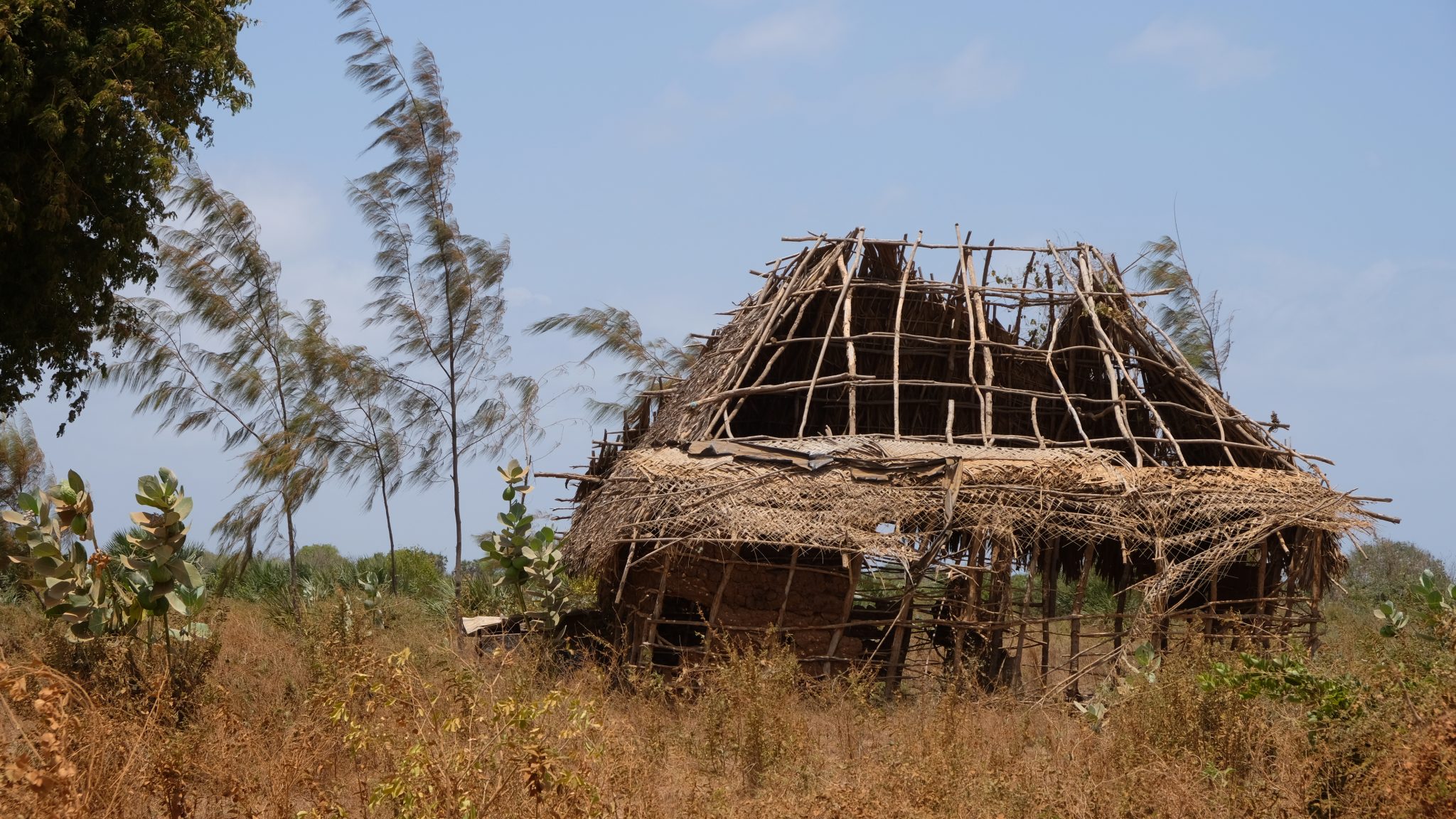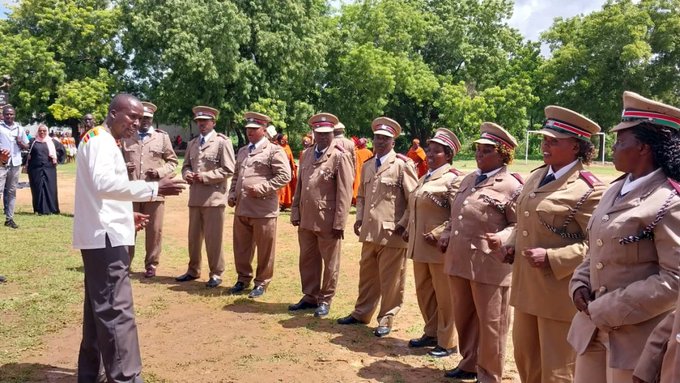Investigations
How Rogue Chiefs Are Driving Land Grabbing in Lamu

For years, the serene coastal county of Lamu has battled a deepening crisis — land grabbing. What was once a quiet, laid-back region has become a landmine of legal battles, displacement, and corruption.
At the heart of the crisis is an unlikely accomplice — local chiefs. While traditionally seen as custodians of peace and justice, some chiefs in Lamu have been accused of enabling powerful individuals to snatch land that belongs to locals.
From approving fraudulent documents to colluding with tycoons, their involvement has sparked outrage among residents, human rights defenders, and government officials alike.

The land grabbing in Lamu is not just a legal issue — it’s a leadership crisis. Chiefs, who should protect communities, have instead helped rob families of their heritage. [Photo/Courtesy]
Chiefs Fuel Land Grabbing in Lamu Through Fraud and Ignorance
Lamu’s land grabbing menace has a disturbing enabler — national government administrators, especially chiefs and assistant chiefs. A glaring example is the story of Mr. Shali Vavo’s family in Mokowe. For more than seven years, they fought a legal battle to reclaim their six-acre ancestral land.
The land had been illegally taken by a wealthy tycoon who allegedly worked hand-in-hand with the local chief to issue fake documents. In May, the family finally won the case, but the damage had already been done — both emotionally and financially.
Such cases are no longer rare. Residents from various parts of Lamu, including Hindi, Witu, and Mpeketoni, have reported similar experiences. Chiefs, especially those new to the role, are being drawn into land matters they barely understand.
A senior government official admitted that many young chiefs lack the proper training and awareness of their job boundaries. As a result, they get involved in land issues and make decisions that are not within their mandate.
This growing trend has caught the attention of regional and national government leaders. During a recent security tour in Lamu, Coast Regional Commissioner Rhoda Onyancha publicly warned chiefs and their assistants against interfering with land ownership.
She stressed that their interference often stirs conflict and worsens the insecurity already threatening Lamu. The arrival of mega projects under the Lamu Port-South Sudan-Ethiopia Transport Corridor (LAPSSET) has made land in Lamu more valuable than ever.
Alongside the port, highways and oil pipelines are being developed. These projects have turned idle or communal land into hot property. Unfortunately, with this new value comes greed.
Land grabbers, with the help of corrupt administrators, are swooping in to seize land that doesn’t belong to them.
Residents Are Losing Ancestral Land
The Lamu land grabbing crisis isn’t just a political headline. It’s a real, painful problem affecting real people. Families that have lived on the same land for generations are being kicked out without warning.
Many don’t even know their land has been grabbed until it’s too late — when construction starts or when they are taken to court. In most of these cases, the grabbers show up with documents signed or stamped by local chiefs.
These papers, often fake or processed fraudulently, carry a heavy influence in court. Chiefs are trusted community leaders, so their approval gives false legitimacy to illegal claims.
The courts have become the only hope for justice. However, the legal process is expensive and slow. Few residents have the money or knowledge to take on wealthy land grabbers in court. As a result, many surrender their land, defeated and frustrated.
Ms. Onyancha acknowledged this growing problem. She called it an “internal issue” that is just as dangerous as external threats like terrorism. Her firm message was clear — chiefs must stop meddling in land matters or face action.
Weak Oversight Encourages Abuse of Power

The government must act fast to educate, monitor, and punish rogue administrators. If left unchecked, the land wars in Lamu will only get worse, fueled by greed, corruption, and ignorance. [Photo: Courtesy]
Even Cabinet Secretary for Interior Kipchumba Murkomen has weighed in. During a visit to Lamu, he urged citizens to stop encroaching on private land and called out officials who assist in such actions. His remarks reinforced a growing realization — the system meant to protect landowners is broken from within.
The position of chief was once sacred. Chiefs were chosen to uphold peace, mediate disputes, and support the rule of law. But in Lamu today, that role is being distorted. Some chiefs now act as brokers, middlemen between land grabbers and the land itself.
Training and accountability must be part of the solution. Without strict laws and regular education on the limits of their power, more chiefs will fall into the trap. Some may do it for bribes. Others, simply because they don’t know better.
Kenya Insights allows guest blogging, if you want to be published on Kenya’s most authoritative and accurate blog, have an expose, news TIPS, story angles, human interest stories, drop us an email on [email protected] or via Telegram
-

 Business1 week ago
Business1 week agobetPawa Empire Crumbles: Mr Eazi’s Betting Gambit Unravels Amid Partner’s Shadowy Deals
-

 News6 days ago
News6 days agoDCI Probes Meridian Equator Hospital After Botched Procedure That Killed a Lawyer
-

 Business5 days ago
Business5 days agoMinnesota Fraud, Rice Saga, Medical Equipment Deal: Why BBS Mall Owner Abdiweli Hassan is Becoming The Face of Controversial Somali Businessman in Nairobi
-

 Business1 week ago
Business1 week agoKRA Boss Humphrey Watanga In Big Trouble In Sh5.5 Billion Rice Import Scandal
-

 Investigations2 weeks ago
Investigations2 weeks agoKERRA Homa Bay Region Manager Calvince Thomas Accused of Swindling Businessman Ksh 2 Million in Phantom Tender Deal
-

 Business1 week ago
Business1 week agoState Set to Demolish Pastor Ng’ang’a’s Church in Sh28 Billion Railway City Push
-

 Business7 days ago
Business7 days agoControversial Turkish Firm Celebi Canceled in India Over Security Concerns Acquires Strategic Property in Nairobi’s Main Airport
-

 Politics5 days ago
Politics5 days agoYour Excellency! How Ida’s New Job Title From Ruto’s Envoy Job Is Likely to Impact Luo Politics Post Raila



















